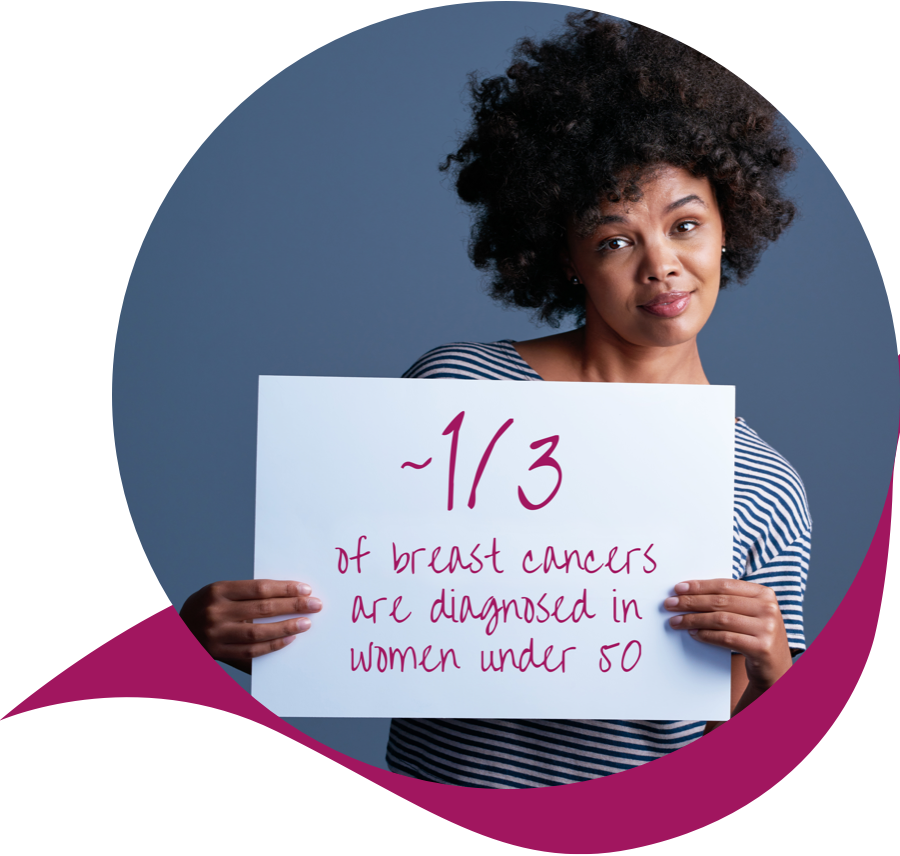Finding the right treatment
One-size-fits-all doesn’t exist.
Personalized Medicine, also known as Precision Medicine, is the practice of using information specific to you to make medical decisions that are in your best interest. It’s a matter of basing care on more than just numbers or facts. It’s about considering all the characteristics of yourself and your breast cancer – and assessing how each approach to the cancer will affect your own dreams and situation in life.

Making medicine more about you.
I Am Not a Number
That’s true because no woman or tumor is the same. And the best way to differentiate is through the right genomic testing and proper consultation. One test score doesn’t give your doctor everything they need to know.
Combining your life goals with your complete genomic profile can shift your entire course of treatment for better, happier outcomes.
I Am Under 50
Breast cancer can be even more challenging to treat in younger women because of the lasting effects associated with certain therapies, particularly those that are hormonal. While the estrogen that your ovaries produce can fuel hormonally-driven tumors, putting a stopper on that hormone can lead to infertility.
This is where testing becomes critical. While some diagnostic tests may regard a young woman as having an aggressive cancer that is like to recur, genomic tests could reveal that the cancer isn’t actually that serious and doesn’t require radical or hormonal therapy. In that case, she could save herself from unnecessary treatments that may reduce ovarian function and eventually have the family she always wanted.

Choose better.
Once your tests have revealed all there is to know about your unique cancer, you and your doctor can decide on the most effective therapy at every step in your journey.
By helping you rule out treatment that we know may not work well, we hope to improve and extend your #lifeaftercancer as much as possible.

